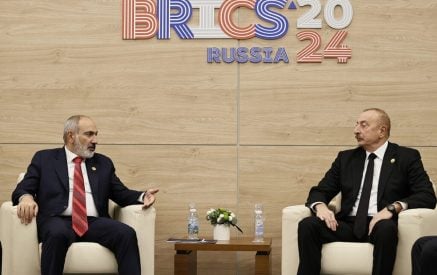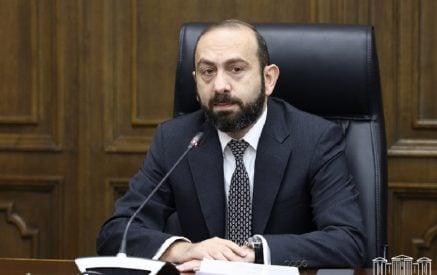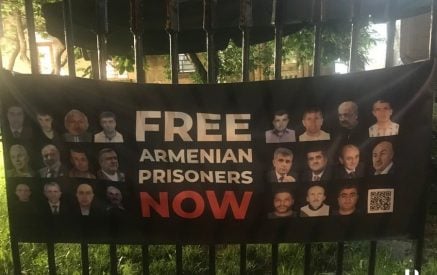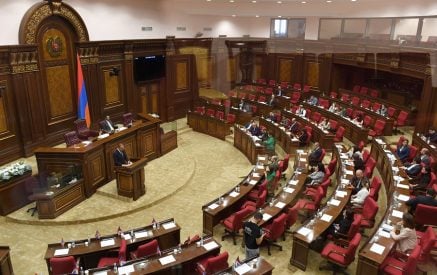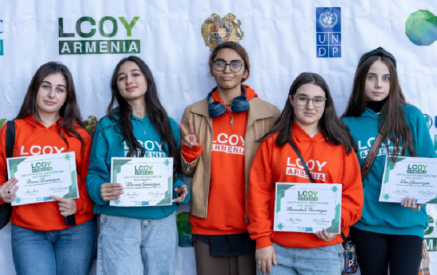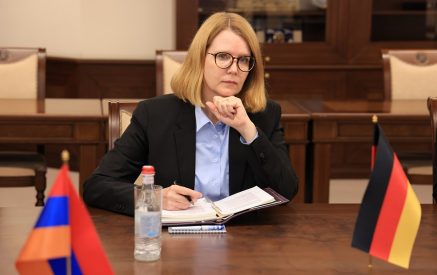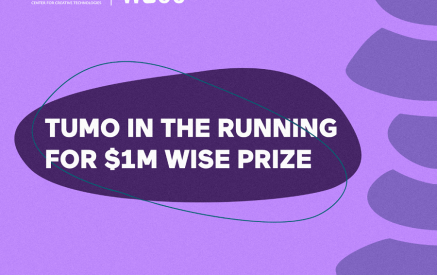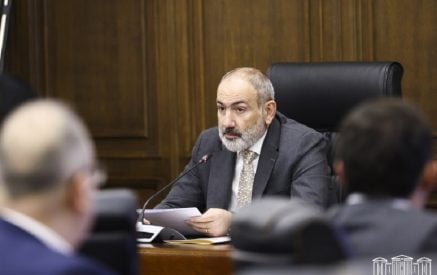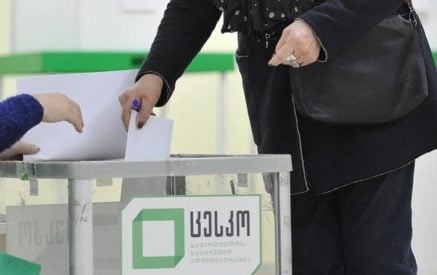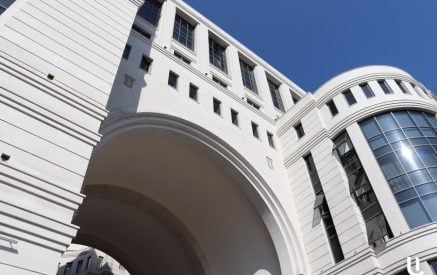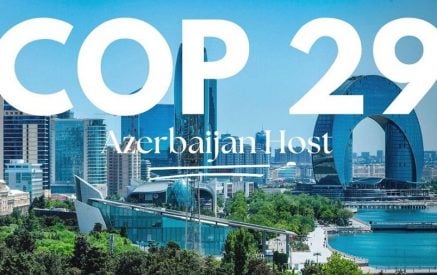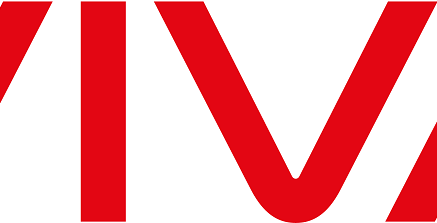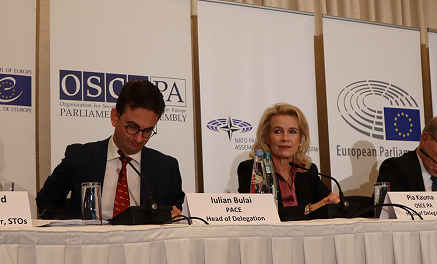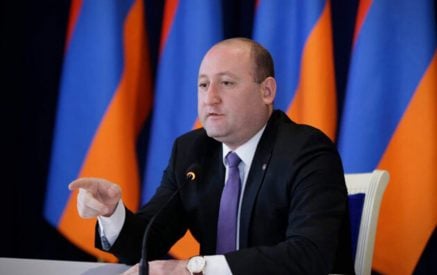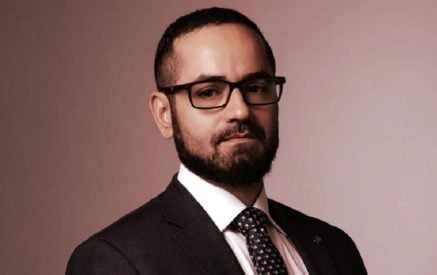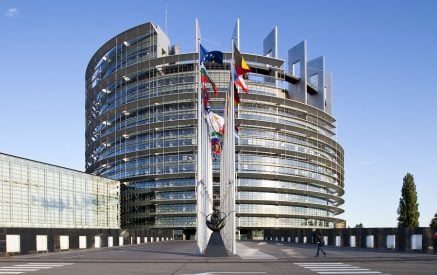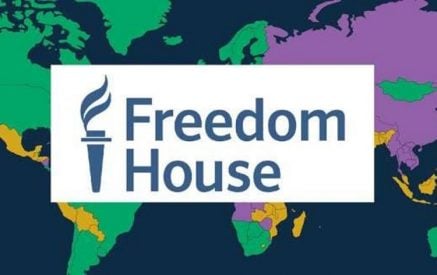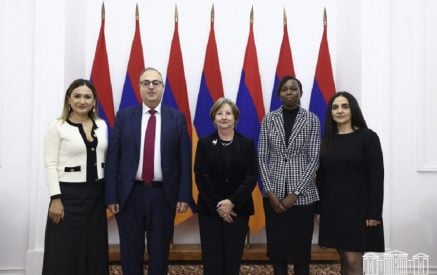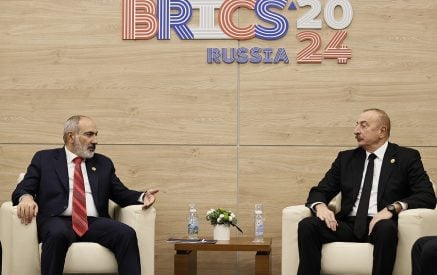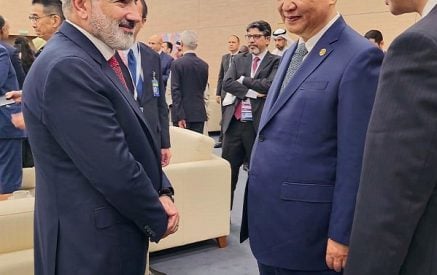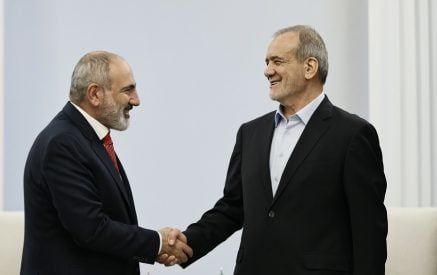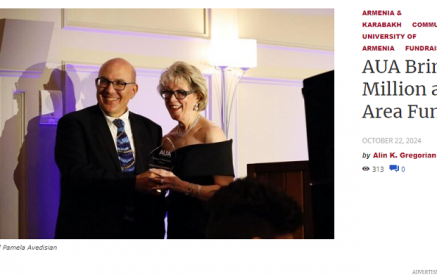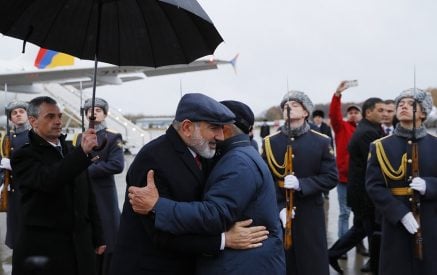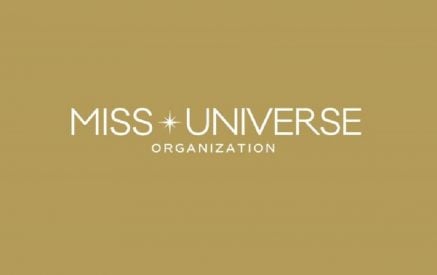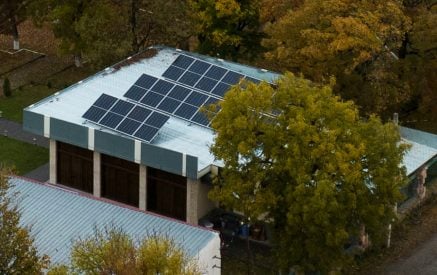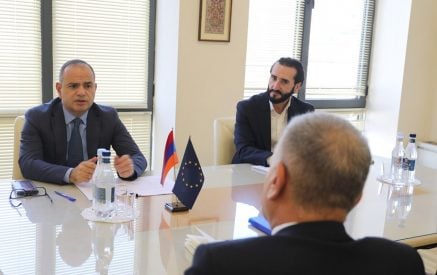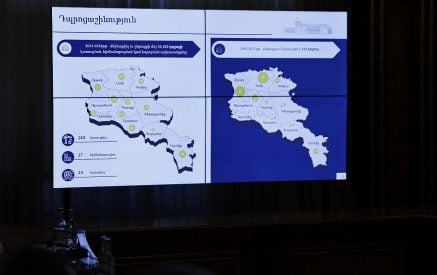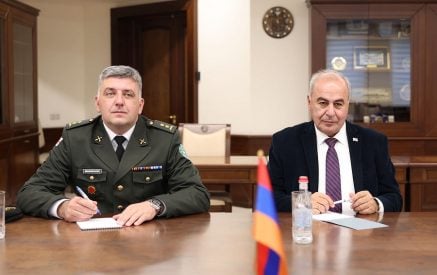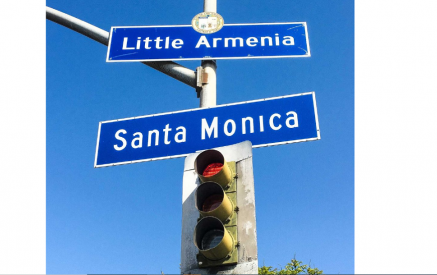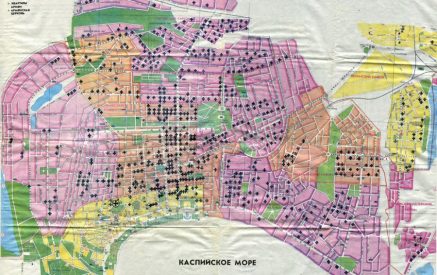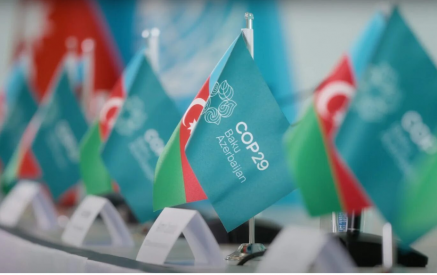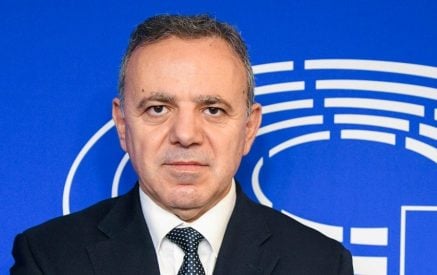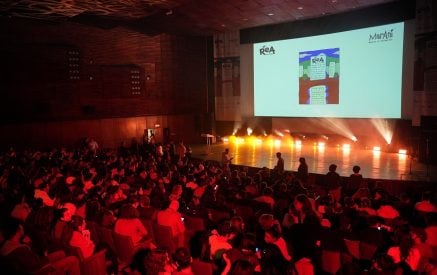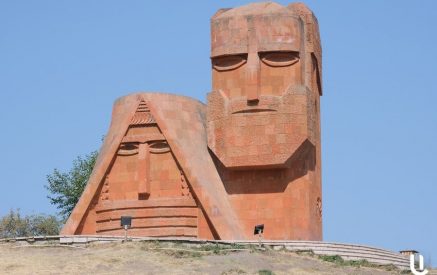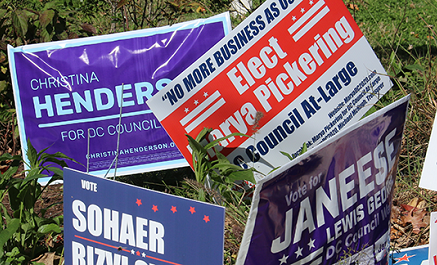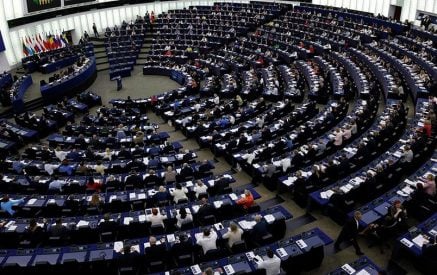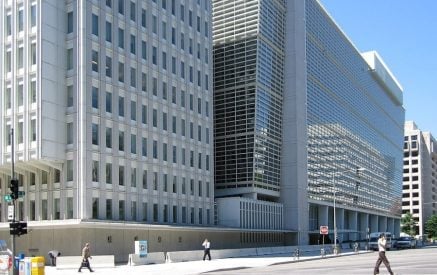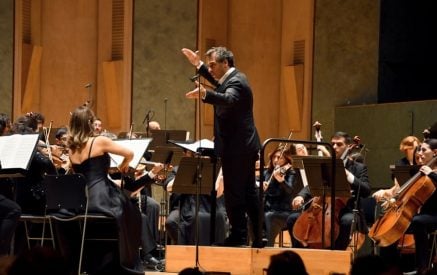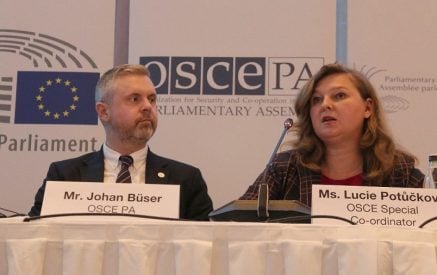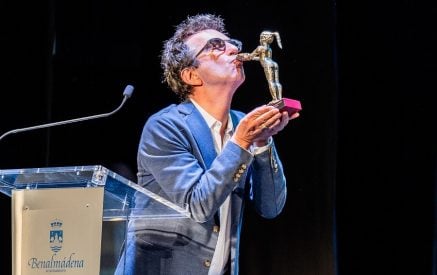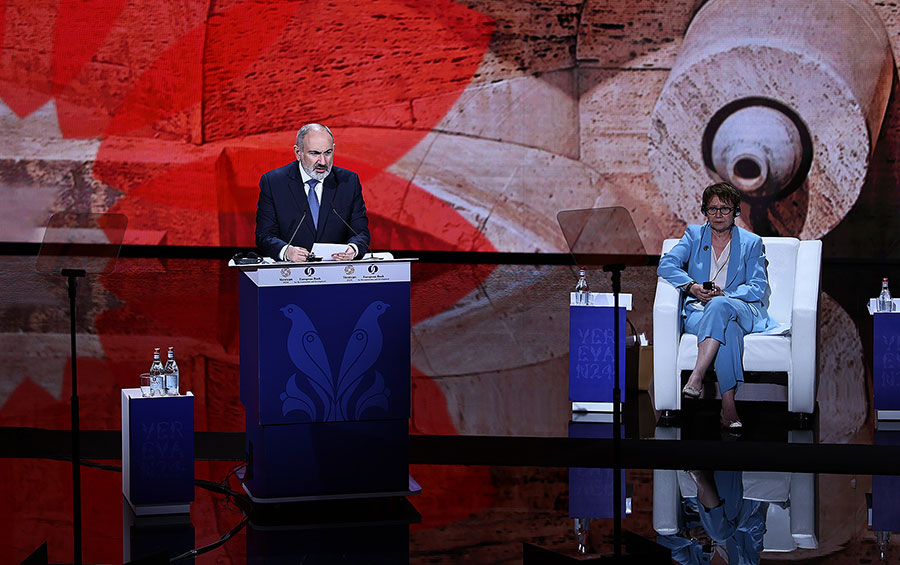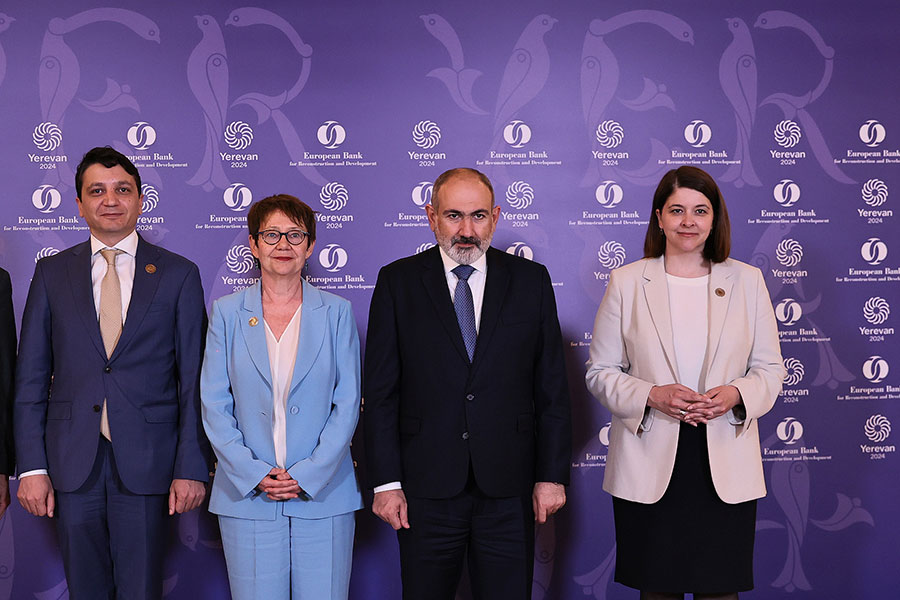Prime Minister Nikol Pashinyan attended the opening ceremony of the annual meeting of the European Bank for Reconstruction and Development. The Prime Minister made a speech, in which he specifically stated:
“Dear Ms President of EBRD, honorable heads of delegations, dear attendees,
I salute the holding of the annual meeting of the European Bank for Reconstruction and Development in the Republic of Armenia. It is an honor for us to host this prestigious European institution, of which Armenia is a member, the partnership with which we greatly value.
The economy of the Republic of Armenia has experienced a great growth in recent years. Since the People’s Nonviolent Velvet Revolution of 2018, Armenia’s economy has grown by almost 30 percent. State budget revenues increased by more than 91 percent, about 200,000 jobs were created, which means an increase of about 37 percent in the total number of jobs. The average nominal salary has increased by about 87 percent compared to 2017, the GDP per capita has almost doubled. Please, take into account that during this time we also survived the Covid epidemic, the 44-day war, a humanitarian crisis and the deportation of more than 100 thousand Armenians from Nagorno Karabakh, the occupation of more than 200 square kilometers of sovereign territories of the Republic of Armenia, internal political and regional escalations. But thanks to the above-mentioned economic indicators, we were able to resist all the mentioned challenges. I must note, however, that the mentioned economic indicators were recorded precisely because of the changes brought by the People’s, Non-violent, Velvet Revolution of 2018 and the government’s non-deviation from the course of democratic reforms.
Read also
It was after the revolution that all businessmen in Armenia got the opportunity to conduct economic activities freely and without restrictions. Until then, the most profitable branches of the economy in the Republic of Armenia were actually quotas in a shadowy way, the import and export of many products was not possible without the permission of the political authorities.
Since 2018, these phenomena have been eradicated from Armenia, and now in our country all those people who have the necessary skills, abilities and desire can make a profit. It is thanks to these people that the economy has developed, state budget revenues have increased, and these people are the locomotive of our country’s development.
Economic growth is, of course, influenced by various factors. But in Armenia, by and large, the rate of economic growth is directly proportional to the course of democratic reforms. We have significantly reduced the shadow, we are relentlessly fighting corruption. In Transparency International’s Global Index of Corruption Perceptions, the Republic of Armenia has progressed by 45 points since 2018, moving from 107th place to 62nd place.
Dear attendees,
As a result of all these developments, the potential of Armenia’s economy has increased significantly, and the realization of this potential is a new challenge for our country, because the proper realization of this potential is of utmost importance from the point of view of the future development of our country. To solve this problem, we believe three key things should be done. reforms in the education sector, development of institutional capacities, implementation of the peace agenda.
In the field of education, we are at the most active stage of improving contentual and physical infrastructure. We have adopted the new standards of pre-school education and general education and started the teacher certification process, one of the key goals of which is to double teachers’ salaries through qualification verification.
Also, in order to ensure access to education in the entire territory of the republic, we have undertaken the construction of 500 kindergartens and 300 schools, and by the way, on the way to the implementation of this project, we often feel the institutional capacity gaps in the education sector, in the public and private sectors. In any case, the fact that compared to 2017, the budgetary financing of the education sector in 2024 has more than doubled, more specifically, it has increased by 119 percent, deserves attention.
Science funding has increased by 147 percent compared to 2017, and here also the processes of sometimes even tripling the salaries of scientists are underway.
In this context, we attach special importance to the reforms of vocational education and training, as well as higher education. We are in the active stage of discussions of the Academic City project. The idea is as follows. build an Academic City from scratch, which will become the university and IT center of the country, as well as a favorite place for intellectual entertainment. I would like to draw the attention of investors to this project, the development of the master plan of which will be completed soon.
Reforms in the field of education are key for us, because the new quality of education is necessary from the point of view of ensuring the further progress of our country. Education is also a tool to ensure democracy, anti-corruption practices, institutional capacity building. After all, the work around all these agendas is done by people, and the more highly qualified specialists there are, the easier it is to implement any, even the most ambitious projects.
But the idea is not only making the next generation with much higher level of education and be more competitive in the global and local labor market and thus make our economy more competitive. The issue is that during the reforms of the education sector, we also learn, and in general, our strategic concept of the education sector is making education a lifelong process and a state ideology. As I have already said, on the way to the implementation of the reform and development agenda, we very often feel the gaps in our educational system, in our ingrained attitude towards education, both in the public and private sectors.
The private sector is also in need of highly qualified specialists today, and this is often needed to reduce production costs, enter new markets, and develop production and labor standards. Of course, the government implements programs aimed at all this, but also our abilities to implement and improve these programs need to be developed. And development is not possible without education, without learning.
No creative change is possible without learning. I have already talked about the peace agenda, but it is not possible to live peacefully without learning, because some countries in our region, for example, Armenia and Azerbaijan, do not have the experience and knowledge of peaceful coexistence. They have been in conflict since the first days of independence, and beyond political negotiations and principles of peace, there is an important prerequisite: learning to live peacefully, which is an extremely difficult process, because I repeat, neither we nor Azerbaijan know what it is, what it looks like. In the case of Azerbaijan, living peacefully with Armenia, in the case of Armenia, living peacefully with Azerbaijan are unfamiliar phenomena.
And what you don’t know brings uncertainties, concerns, tensions, which you understandably formulate and perceive based on your historical experience, and historical experience says that this is not possible.
This is where the need to learn comes, because the historical experience of mankind should have told and convinced mankind that it is not possible to fly into space. And it really wasn’t possible until humanity started learning to fly into space, and now you won’t surprise anyone by flying into space.
And this happened after mankind learned to make tools that made possible what previously seemed impossible. During that learning, people were burned at the stake, but the globe did not stop spinning and the learning process did not stop.
In the case of Armenia and Azerbaijan, we also need tools to learn to live peacefully. One of those tools is the “Crossroads of Peace” project proposed by the government, this project is not only for Armenia and Azerbaijan, but if we look at it in this context, one of the important points is that Armenia and Azerbaijan open for each other highways, railways, opportunities to lay pipelines through each other’s territory, electricity transmission cables, on the basis of respect for each other’s territorial integrity, sovereignty, jurisdiction, on the principle of equality and reciprocity. These principles for the opening of regional communication channels were agreed on on July 15, 2023 in Brussels at a meeting with the participation of the President of Azerbaijan, the President of the European Council, Charles Michel and myself, and was published by Charles Michel.
And on October 6, 2022, in Prague, Armenia and Azerbaijan agreed to recognize each other’s territorial integrity on the basis of 1991 Alma-Ata Declaration.
That declaration was signed by the 12 republics of the former Soviet Union to record that first, the Soviet Union ceases to exist, and the administrative borders exisiting at that moment between the Soviet republics become state borders because the Soviet republics become independent states.
Here, on October 6, 2022, in Prague, through the mediation of French President Emmanuel Macron and European Council President Charles Michel, Armenia and Azerbaijan agreed that the Alma-Ata Declaration should be the basis of demarcation between the two countries.
The demarcation process between Armenia and Azerbaijan has started these days and should become one of the tools that will teach Armenia and Azerbaijan to live peacefully.
Dear EBRD President, dear Heads of Delegations, dear attendees,
Thank you for your attention and I wish you success at the annual meeting of the European Bank for Reconstruction and Development.”
The President of the European Bank for Reconstruction and Development Odile Renaud-Basso also delivered a speech at the conference.


